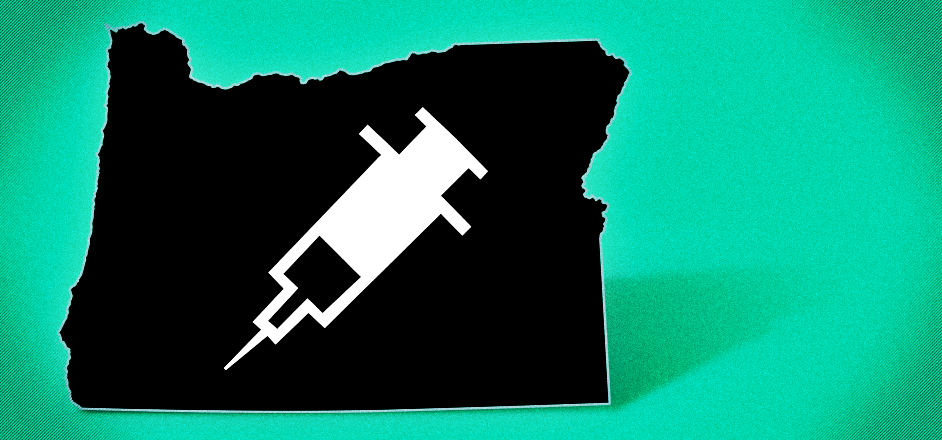In 1973, Oregon became the first state in the nation to decriminalize the possession of handling small amounts of weed. In 2017, it looks to do the same with heroin, cocaine, methamphetamine and a few other substances normally treated as a life-altering felony.
It's all part of the state's initiative to treat substance abuse as a legitimate medical concern rather than a crime. By recently passing House Bill 2355, the possession of small amounts of harder drugs will be moved to a misdemeanor, provided the person doesn't have a prior felony or two previous drug convictions from their past. Access to rehab and mental health clinics would also be easier under the bill, helping those with addiction problems seek a sober lifestyle rather than shoving them into a small room with other addicts and pretending it's doing any good.
“We are tying to move policy towards treatment rather than prison beds,” said state Sen. Jackie Winters (R), co-chair of the Public Safety Committee to The Washington Post. “We can’t continue on the path of building more prisons when often the underlying root cause of the crime is substance use.”
Supporters of the bill (which surprisingly garnered bipartisan cooperation), also feel that lessening the consequences of possession could lead to an improvement in bad policing and profiling around the state, as compounding research shows failed drug policies often target people of color more often than not. HB2355 also addresses this, asking that law enforcement be more transparent in its data collecting so that trends can be better observed providing an easier way to reduce disparities in the future.
“Too often, individuals with addiction issues find their way to the doorstep of the criminal justice system when they are arrested for possession of a controlled substance,” Kevin Campbell, executive director of the Oregon Association Chiefs of Police, wrote in support of the bill. “Unfortunately, felony convictions in these cases also include unintended and collateral consequences including barriers to housing and employment and a disparate impact on minority communities.”
The bill ran swiftly through both Oregon's House and Senate, and now goes to the desk of Gov. Kate Brown (D) for a fancy little signature to make it so. She has said she's looking forward to signing it once it goes through the standard processes of how these things work.
Other drugs haven't been forgotten in Oregon, either. Aside from its ultra-liberal stance on weed, supporters of psychedelics are pushing initiatives to legalize mushrooms (at the very least) in an upcoming election. Leaders of the effort say no one should have anything to worry about if the state becomes the bastion of personal freedoms.
"There really is no danger if you do it in a regulated situation," Tom Eckert, a licensed professional counselor and one of the leaders of the Oregon Psilocybin Society told us before. "You're not going to overdose, it's not addictive. We see a lot of excitement around the idea. This could happen quicker than everyone expects."
Get ready for a population boom, Oregon. You've earned it.



Leave a Reply
You must be logged in to post a comment.